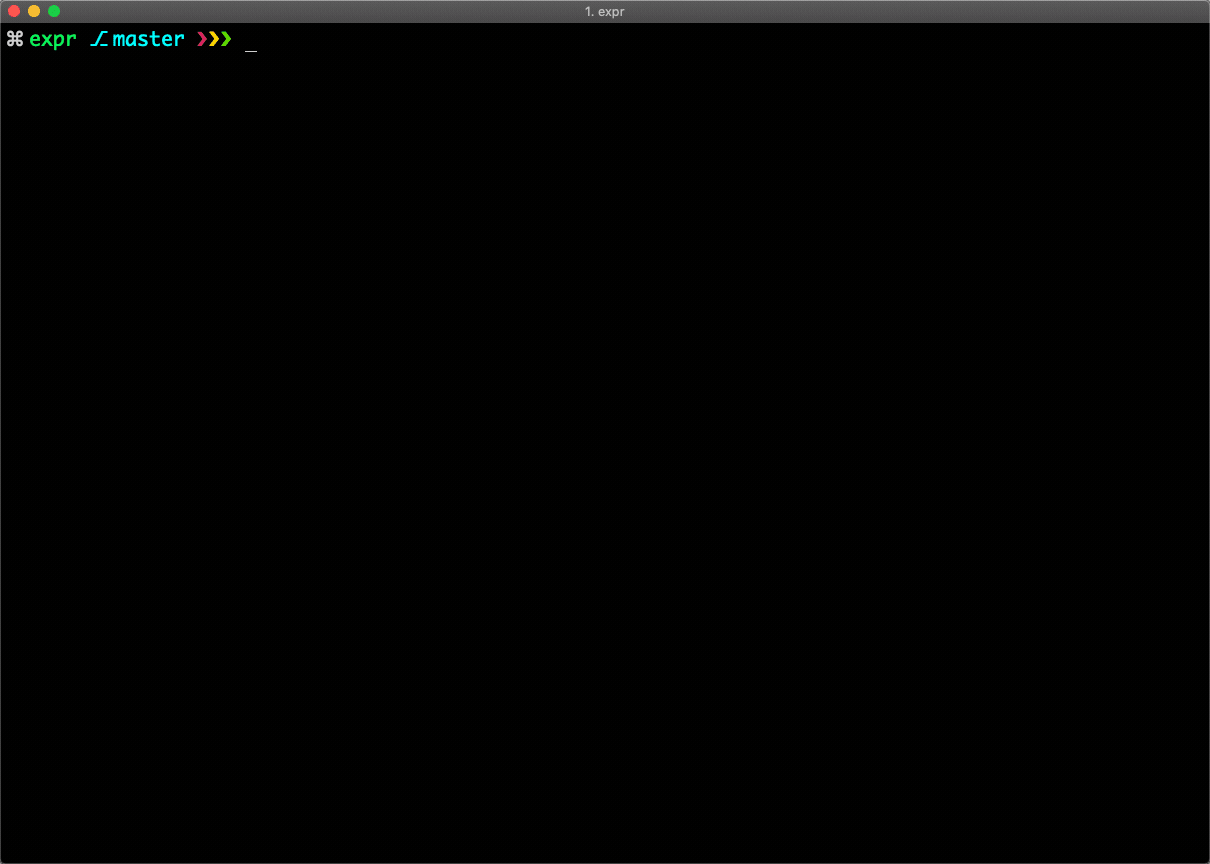Expr package provides an engine that can compile and evaluate expressions. An expression is a one-liner that returns a value (mostly, but not limited to, booleans). It is designed for simplicity, speed and safety.
The purpose of the package is to allow users to use expressions inside configuration for more complex logic. It is a perfect candidate for the foundation of a business rule engine. The idea is to let configure things in a dynamic way without recompile of a program:
# Get the special price if
user.Group in ["good_customers", "collaborator"]
# Promote article to the homepage when
len(article.Comments) > 100 and article.Category not in ["misc"]
# Send an alert when
product.Stock < 15- Seamless integration with Go (no need to redefine types)
- Static typing (example).
out, err := expr.Compile(`name + age`) // err: invalid operation + (mismatched types string and int) // | name + age // | .....^
- User-friendly error messages.
- Reasonable set of basic operators.
- Builtins
all,none,any,one,filter,map.all(Tweets, {.Size <= 280})
- Fast (benchmarks): uses bytecode virtual machine and optimizing compiler.
go get github.com/antonmedv/expr
- See Getting Started page for developer documentation.
- See Language Definition page to learn the syntax.

Also, I have an embeddable code editor written in JavaScript which allows editing expressions with syntax highlighting and autocomplete based on your types declaration.
package main
import (
"fmt"
"github.com/antonmedv/expr"
)
func main() {
env := map[string]interface{}{
"greet": "Hello, %v!",
"names": []string{"world", "you"},
"sprintf": fmt.Sprintf,
}
code := `sprintf(greet, names[0])`
program, err := expr.Compile(code, expr.Env(env))
if err != nil {
panic(err)
}
output, err := expr.Run(program, env)
if err != nil {
panic(err)
}
fmt.Println(output)
}package main
import (
"fmt"
"github.com/antonmedv/expr"
)
type Tweet struct {
Len int
}
type Env struct {
Tweets []Tweet
}
func main() {
code := `all(Tweets, {.Len <= 240})`
program, err := expr.Compile(code, expr.Env(Env{}))
if err != nil {
panic(err)
}
env := Env{
Tweets: []Tweet{{42}, {98}, {69}},
}
output, err := expr.Run(program, env)
if err != nil {
panic(err)
}
fmt.Println(output)
}Expr consist of a few packages for parsing source code to AST, type checking AST, compiling to bytecode and VM for running bytecode program.
Also expr provides powerful tool exe for debugging. It has interactive terminal debugger for our bytecode virtual machine.
Aviasales are actively using Expr for different parts of the search engine.
Argo Rollouts - Progressive Delivery for Kubernetes.
Argo Workflows - The workflow engine for Kubernetes.
Crowdsec - A security automation tool.
- FACEIT uses Expr to allow customization of its eSports matchmaking algorithm.
- Mystery Minds uses Expr to allow easy yet powerful customization of its matching algorithm.
qiniu qiniu cloud use Expr in trade systems.
- Melrōse uses Expr to implement its music programming language which allows for an interactive music composition experience.

